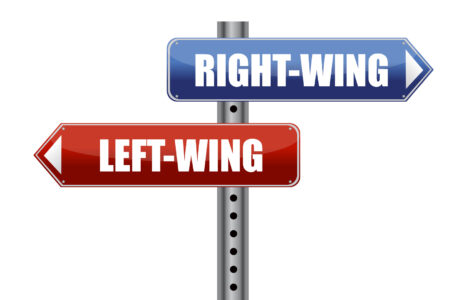
It is almost 15 years since the break-up of the Soviet Union, and Canadians still don’t know much about our northern neighbour, Russia, and its former satellite states. Unlike Canada and its southern neighbour, the United States, where there is a high degree of economic integration and complementarity through trade and invest- ment, Russia and the former Soviet states are potential rivals to Canadian industries, especially in extractive industries like oil, forestry, nickel and gold, and in manufacturing like aerospace, steel, uranium processing and aluminum. That is why it is in Canada’s interest to know and understand the political and social developments in the ex-Soviet states, and whether political change is achieved by democratic or undemocratic means. Recently, political turnover has been by resignation (Russia’s Boris Yeltsin), by peaceful revolu- tion (Georgia, Kyrgyzstan), by disputed elections (Ukraine), or by undemocratic, authoritarian nepotism (Kazakhstan, Uzbekistan and Turkmenistan).
Like the Gulf states, the southern ”œstans”, or states of central Asia, are enormously rich in oil and gas, gold, urani- um, and various old state industries that are being recapi- talized. Exports within the old Soviet states are growing at five to seven percent annually, not as fast as China’s growth, but China needs to grow at double digit levels to absorb so much young manpower, which, without their cell phones and black market iPods, could become akin to French revo- lutionaries circa 1789. The central Asian regions are impor- tant for another reason. They sit atop the most volatile geopolitics in the world: China to the east, India to the south, Russia to the north, and Turkey to the west. Two of George W. Bush’s axis of evil states, Iran and Iraq, are over the mountain roofs of the world, anchored in the quick- sands of radical Islam, the resource curse of abundant raw materials and extreme poverty, not to speak of opium pro- duction and overland distribution. The US, with strategic airbases for flights to Iraq and Afghanistan, shares big power worries about a region that has a his- tory of being spiritually and culturally close to the Taliban.
Former President Askar Akayev’s official resignation in April ”” he sent it in by video from exile in Moscow ”” is the latest development in Kyrgyzstan, a bellwether state in the war on terror, since it and other cen- tral Asian states are the conduit for the opium trade from Afghanistan. Is the overthrow of this deeply unpopu- lar president in the Kyrgyz Tulip Revolution in March, and the call for June elections, a harbinger of a democracy movement sweeping through ex-Soviet states? Or is it a dif- ferent political challenge, a country sick and tired of corruption and nepo- tism, where unemployment is above 50 percent? The deposed president and his family lost all political legiti- macy. Their escape to Russia was untidy, but the new acting president, Kurmanbek Bakiyev, is well known in the Kremlin and will not cause much grief for Russia. What does this region mean for Canada, with investments in oil and gas, pipelines, mining and infrastructure?
All of the ex-Soviet ”œstans” are dic- tatorships, despite early hopes when the Soviet Union broke up that they would become democracies. Kyrgystan became the West’s favourite country, the Switzerland of central Asia, a term I coined for the newly appointed President Askar Akayev in 1991. An educated physicist, he was chosen in a clan-style compromise pro- posed by the superb writer, Chingiz Aitmatov. Akayev abolished the Communist Party, and received enor- mous aid from governments, the World Bank, the Asian Development Bank, and the UNDP. He cultivated Western powers, visited the two white houses (in Washington and in Moscow) and eventually allowed both Russia and the US to assume two air- bases, reconstructed in the 1980s to support the Soviet invasion of Afghanistan. Like most Soviet Republics, Kyrgyzstan introduced some market reforms, privatized obsolete sec- tors, and set up its own banking system and currency. US consulting firms like Price Waterhouse received enormous consulting contracts for their efforts, and then departed. Akayev allowed Cameco of Canada to develop an enor- mous gold mine, Kumptor, but on terms that most Kyrgyz questioned.
In 2000 Akayev won election, but first held a referendum to extend his presidency. He promised to stay for one term. Subsequently, he consolidat- ed his power, advanced the careers of his children, imposed state control of the media, and largely froze out any attempts at minor economic reforms, like a simple tax system, removing restrictions on business start-ups, or simplifying foreign visa requirements. Most foreign investment has aban- doned the region, corruption is ram- pant, and it is harder to get visitor visas today than five years ago. Unemployment outside the capital, Bishkek, is about 60 percent. Infrastructure, roads, water supply and public buildings have deteriorated. A once well-educated workforce is largely unemployed; the managerial class departs for Russia, or moves to China. Some of the best educated have moved to Europe and North America.
As in Ukraine, the president played too many games with the constitution as a way to preserve power, install fam- ily and friends, and conserve the cur- rency of corruption. Slowly, Akayev’s friends deserted him. Crowds gathered around the white marbled White House in Bishkek. Presidential defiance to speak to the protestors con- firmed for many that elec- tion fraud would continue in the run-off votes. The seats won by Akayev’s fami- ly, his daughter Bermet and his son Aidar, pushed pro- testers past the tipping point.
Akayev’s support in the dispersed countryside was nil, especial- ly with media reports that he was building a huge palace for himself in Bishkek. The crowds learned the les- sons from Ukraine: strength in num- bers. Some of the protests were students at the American university in Bishkek, and many had traveled to Kiev to take part in Ukraine’s Orange Revolution. Akayev, aware of the grow- ing strength of the protest movement as it gathered momentum from its start in the southern city of Osh (a Silk Road town and distribution point for the opium trade), knew only too well what happened to his friend in Kiev, Leonard Kuchma.
The security forces would not be a help: most were young recruits from rural areas; almost all ethnic Kyrgyz who would not shoot their own. To everyone’s surprise, Akayev fled by helicopter to a Russian airbase en route Moscow. It was reminiscent of Louis XVI in 1791 in France or, as La Fayette said to Thomas Paine, ”œThe birds are flown!”
What will happen to the country? There will be new elections on July 10, now legitimized by Akayev’s resignation. In time, the Akayev fami- ly may be prosecuted for fraud and bribery, particularly because Akayev’s son was caught with $60 million in cash crossing the border into Kazakhstan. Only the former president himself retained immunity from pros- ecution among the terms of his resig- nation. The opposition has several well-educated candidates, two of whom, served as ambassadors to the United States and Canada. The acting president, Kurmanbek Bakiyev, will get much support for security measures prior to elections; the acting Interior Minister, Felix Kulov, has calmed the capital, stopped the looting, and returned police and security to their jobs. Kulov withdrew from the presi- dential race in return for an agreement that he would become prime minister under a Bishkek presidency. The two leaders may run a regime akin to Blair and Brown in the UK, with the empha- sis on law and order. But this result will be asking for a lot, when apparatchiks dominate the legislature and the civil service.
Many of the decisions taken by the old parliament and the Akayev regime may be open to public scruti- ny, including the giant mining proj- ect, Kumptor, indirectly owned by Canadian interests. Foreign embassies, and the Organization for security and Co-operation in Europe know more than they are admitting about the levels of corruption within the Akayev regime: foreigners also tolerated Akayev’s position as a quasi- democrat when it suited their pur- pose and his family interests. US Pentagon interests support whoever is in power; elections are simply another tool for approved states, autocratic like Uzbekistan or ”œdemo- cratic” like Kyrgyzstan.
Will the Kyrgyz revolution cause long nights in the presidential quar- ters of the neighbouring states of Kazakhstan and Uzbekistan, where the regimes are even more oppressive? These states can squeeze Kyrgyzstan for oil and gas feedstock in this resource-poor country. Neigh- bouring Tajikistan is much like Kyr- gyzstan: mountainous, gorgeously beautiful, and water-rich. China’s eye is on this area as it expands its econo- my to the northwest, and looks for central Asia’s energy and potential food supplies. Yet the circumstances that led to a bloodless coup in Kyr- gyzstan are difficult to replicate in the neighbouring republics. For one thing, their leaders were always suspi- cious of Akayev’s motives: pro-demo- cratic for European and American ears, because they funded hundreds of millions of dollars, which made Akayev’s family extremely rich; and pro-Russian when it suited his pur- poses. But the other leaders knew, especially Nursultan Nazarbaev in Kazakhstan, that open elections would mean that his entourage, and the Kazakh ethnic group, could lose out to the more populous Russian community. Tajikistan is even poorer than Kyrgyzstan and suffers from the scars of the 1990s civil war.
The two despots, rivals to Stalin’s ways of total repression, Saparmurat Niyazov of Turkmenistan and Islam Karimov of Uzbekistan, dis- dain any democratic tendencies and use their gas pipelines as blackmail tools against neighbours. The Americans need them as allies in the war on terror, while Western oil and mining companies prefer to deal with a strong government. Russia sits and waits, meanwhile using its oil rev- enues, its successful stock market, and its steadily rising cash reserves to pay off as much Western debt as possible.
If the West takes the war on ter- ror seriously, they will not abandon the Kyrgyz people to the whims of neighboring dictators in Tashkent, the Kremlin, or in Beijing. Throughout the region, more emphasis has to be placed on the educational needs of young people, who come from extremely educated families in the old Soviet system. But they lack jobs because the finance and banking system doesn’t work, and foreign assistance personnel reject much aid to private start-ups. The Americans and Europeans fund academic exchange programs and initiatives like printing presses and broadcast outlets, but there is precious little in new business start-ups. Governments use their tax power, their friends and their police powers to stamp out or ruin small businesses. Government workers, poorly paid, openly accept bribes to stay alive. Even in Russia, it takes some 64 days of bureaucracy to start a small business.
In central Asia, the new Great Game has started. From the time of Napoleon and Catherine the Great, this vast region was the playground of empires, the Russian Empire, the Ottoman Empire and the British Empire, as the overland gateway to India. Today, the Great Game is over commodities and its vast energy resources.
Kazakhstan alone may have reserves bigger than Saudi Arabia’s. Major new oil pipelines are on the drawing boards, three westward to Turkey (including one overland through Russia and Chechnya), one south to the sea through Iran, and eastward to China and Japan. Most of the world doesn’t understand the enormous geopolitics of the region, where tril- lions of dollars are at stake, where politicians and lead- ers have unknown agendas (the former leader of Chechnya was Kyrgyz), and where today’s strategy can effect real, second-order effects for generations.
Kyrgyzstan may be a small republic in central Asia, unknown to most Canadians. As billions of dol- lars flow, fuelled by oil money, multinational investment interests, political bribes and military security, Canada has a direct stake in the out- comes. Russia and these satellite republics remain Canada’s northern neighbours, with time horizons measured in generations.







